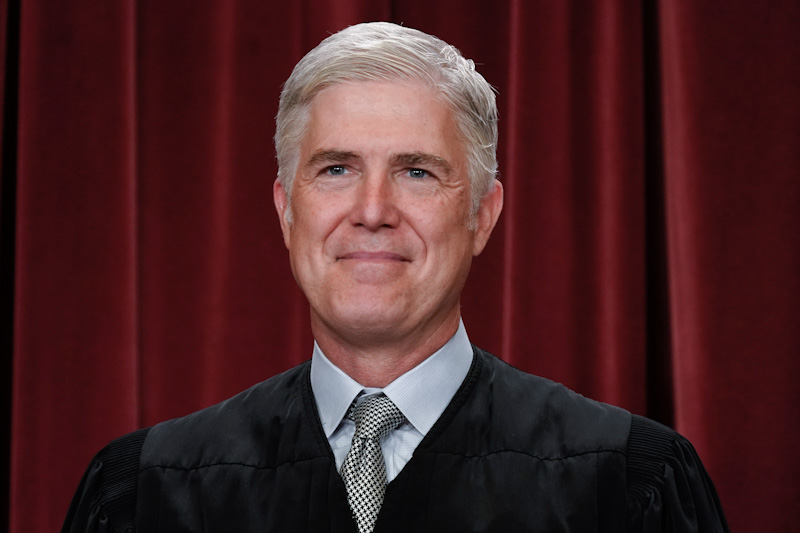Would a mandated Supreme Court ethics code violate separation of powers? Witnesses differ

Image from Shutterstock. Adjacent photo of U.S. Supreme Court Justice Neil Gorsuch by J. Scott Applewhite/The Associated Press.
Can Congress constitutionally impose binding ethics standards on the U.S. Supreme Court, and are new standards even needed? Experts differed on the answers to those questions in testimony before the U.S. Senate Judiciary Committee on Tuesday.
Publications with coverage include Law.com, the Associated Press, Reuters, CNN, the Washington Post and Law360.
Currently, trial-level and appeals judges in the federal judiciary are bound by the Code of Conduct for United States Judges. But the code does not bind Supreme Court justices.
When Chief Justice John Roberts turned down an invitation to testify at the hearing, he forwarded to the committee a “Statement on Ethics Principles and Practices” that all the justices have agreed to follow. Democrats said the principles don’t go far enough.
Two witnesses called to testify by Republican committee members raised concerns that imposing ethics standards on the Supreme Court would violate separation of powers, according to Law.com.
Thomas H. Dupree Jr., co-chair of the appellate practice at Gibson, Dunn & Crutcher, criticized a bill that would require the Supreme Court to adopt an ethics code.
 Related article from ABAJournal.com: “BigLaw CEO bought property partly owned by Gorsuch, who didn’t disclose the buyer”
Related article from ABAJournal.com: “BigLaw CEO bought property partly owned by Gorsuch, who didn’t disclose the buyer”
“This bill, and in particular its provision directing the justices to draft a code of conduct and put it out for public notice and comment and then adopt it, seems to be animated by an assumption that the Supreme Court of the United States is no different from the Department of Agriculture or any federal agency that can be commanded by Congress to engage in rulemaking,” Dupree said.
But Amanda Frost, a professor at the University of Virginia School of Law, said Congress has the authority to pass laws concerning Supreme Court administration.
The Constitution “leaves to Congress that essential role of administering the court, and Congress has always done so,” Frost said.
Also differing with the GOP view were two constitutional experts who submitted written testimony—retired Judge J. Michael Luttig, a former federal appeals judge, and Laurence Tribe, a professor emeritus at Harvard Law School. They said Congress could impose a conduct code on the justices, but it could not order the high court to adopt its own ethics code, according to the Washington Post.
A binding ethics code for the Supreme Court “ought not be thought of as anything more—and certainly nothing less—than the housekeeping that is necessary to maintain a republic,” Luttig wrote.
The Senate Judiciary Committee hearing follows revelations that Justice Clarence Thomas accepted luxury travel from GOP megadonor and billionaire Harlan Crow, who also purchased property in which Thomas had an interest.
Republicans complained that the hearing was an attempt to destroy Thomas’ reputation and delegitimize a conservative court.
“Their comments showed how unlikely it is that Congress will pass legislation on the matter,” according to the Associated Press, “with the parties worlds apart when it comes to the credibility of the Supreme Court, particularly after the seismic decision last June that overturned abortion rights.”
See also:
ABA Journal: “A binding code of ethics for SCOTUS justices is needed to protect the court’s credibility, delegates say”
ABAJournal.com: “Senate Judiciary Committee calls on Chief Justice Roberts to discuss ethics”
ABAJournal.com: “Wife of Chief Justice Roberts generated $10M in commissions in this job, whistleblower says”



